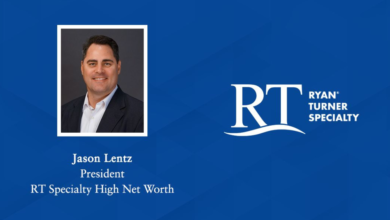What is the key to creating a successful reinsurance training program?

What is the key to creating a successful reinsurance training program?
re Insurance
Written by Mia Wallace
Last month, global reinsurance firm Ariel Re introduced a new wave of summer interns to its Bermuda office. Now in its fourth year, the initiative underscores the importance of making the right investments—and early—to secure the market’s future talent pipeline.
So how does Bermuda’s reinsurance talent pipeline shape up? And what does a great reinsurance training programme entail? Ariel Re’s Chief Human Resources Officer Lindsay Hyland (left) and Chief Operating Officer and Chief Information Officer Gavin Bishop (right) join Reinsurance business to offer their opinions.
Understanding Bermuda’s Talent Scene
What sets Bermuda apart is that it has a very small population and an economy dominated by reinsurance and other financial services. “We tend to see a lot of our students planning a career in this industry and being excited about it,” Bishop said. “In larger jurisdictions, there isn’t the same awareness of reinsurance and the opportunities it offers.”
Get the latest reinsurance news straight to your inbox twice a week. Sign up here
Bermuda has a number of organisations that support talent at various stages of professional development, Hyland noted. The Bermuda Foundation for Insurance Studies (BFIS), the Association of International Companies (ABIC) and the Association of Bermuda Insurers and Reinsurers (ABIR) are particularly helpful in their focus on students and trainees.
“Students are now focusing on relevant courses more than ever before, and many institutions (including our own Bermuda College) are creating courses that include steps towards completing parts of professional designations as part of their undergraduate courses,” she said.
Personal experience was the foundation behind the development of Ariel Re’s summer internship program, with many members of the leadership team having participated in internships with other employers. This provided the company with a solid collective knowledge base on which to build a strong initiative.
“We tend to host events for BFIS trainees and other industry groups, inviting our trainees and trying to make it a little bit different than just saying generically, ‘This department has insurance agents doing insurance,’” Hyland said.
“This year we looked at the impact of Godzilla’s attack on New York from the perspective of each of our major departments, from Actuarial to Infrastructure. This approach worked great from an engagement perspective with the students, who asked some great questions, leading to great discussion.”
How to develop the training program
Bishop and Hyland noted that the transition to hiring a former summer intern as a full-time employee this year was a milestone for the team. As a smaller organization, Ariel Re can run a robust summer intern program, but often struggles to find available entry-level roles to fill when they graduate.
“This year, everything aligned, and we were very happy to welcome a student back to her first full-time job,” Bishop said. “Other than that, we don’t measure milestones per se, although we have helped many students take their first steps in their careers. We try to match students’ skill sets to business needs and get as much alignment as possible to help with future career planning.”
What is the reason behind a successful training program?
As for what the internship entails, Hyland noted that it varies depending on the department and the projects underway. However, she said it’s very important that interns are involved in meaningful work and learn things that give them real industry experience – “There’s no ‘counting paper clips’ here!”
“But sometimes students may find themselves looking for additional assignments, so we encourage them to take industry exams,” she said. “Our operations manager teaches ‘Insurance Services Delivery’ from US institutes on an annual basis, and the trainees are expected to participate and then we cover the cost of the exam for them.
“This course provides knowledge about continuous improvement initiatives that students can apply both inside and outside the office. It also provides something to study if workloads allow. A successful experience can be seen when our students move on to other opportunities, or if they finally understand the field they want to work in.”
The success of any long-term internship program depends on learning from the failures—and building on the successes—of previous iterations. Bishop emphasized that it is extremely important that the person who hires the intern has the time and energy to teach, coach, explain, and mentor the student.
“There is no greater failure than a bored, disengaged intern,” he said. “In addition, it is very important early in the summer to expose our students to everything we do. Working in one department can have an isolating effect and make it difficult for a student to understand how their work impacts not only their team, but also the work of sub-departments and sub-divisions.”
With that in mind, he added, it is imperative that there is at least one session where the company intentionally connects the dots for its students. Finally, it is important that leaders convey the value of all tasks.
“We’ve had a challenge where students sometimes don’t really appreciate the value of understanding lower-value tasks inside and out,” he said. “Until automation is fully implemented, there will still be money to be tied up, payments to set up and licensing. The world has changed dramatically, but getting to the root of the process is essential to understanding the more complex issues.”
Get the latest reinsurance news straight to your inbox twice a week. Sign up here





Fetching comments…